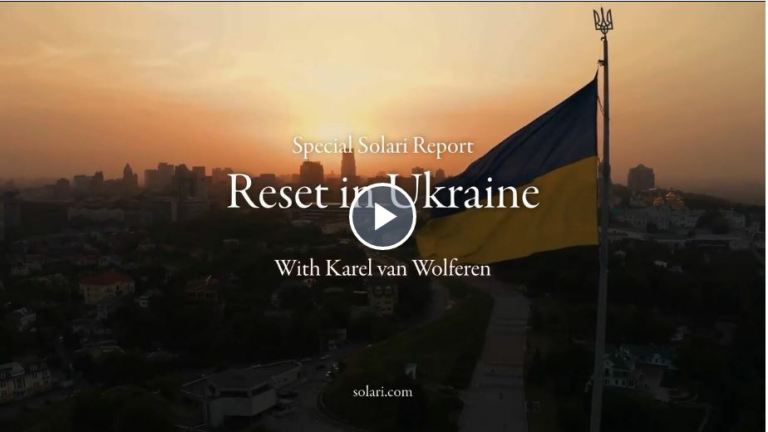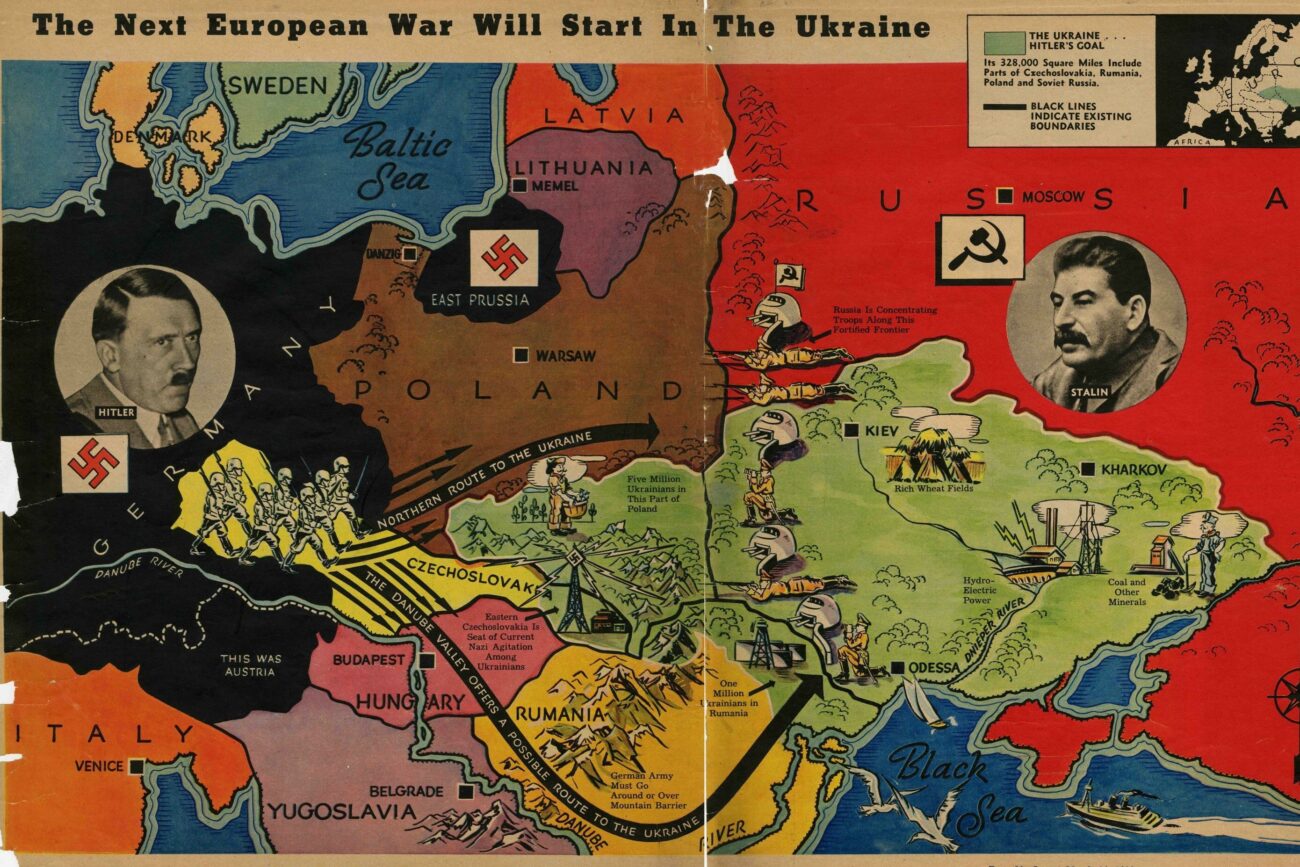The New York Times called it a “mystery,” but the United States executed a covert sea operation that was kept secret—until now
War
Browse the articles related to this topic below.
Join our community on Guilded.
Oliver Stone is a filmmaker with 3 Oscar wins and 11 Oscar nominations. His films include Platoon, Wall Street, Born on the Fourth of July, Scarface, JFK, Nixon, Alexander, W, Snowden, and documentaries where he has interviewed Fidel Castro, Hugo Chavez, and Vladimir Putin.
OUTLINE:
0:00 – Introduction
2:54 – Nuclear power
15:52 – Russia and US relations
21:07 – JFK and the Cold War
26:24 – Interviewing Putin
50:02 – Invasion of Ukraine
59:20 – Why Putin invaded Ukraine
1:13:44 – Propaganda
1:21:02 – Interviewing Putin in 2022
1:28:17 – Nuclear war
1:34:28 – Advice on interviewing
1:38:09 – Interviewing Hitler
1:41:30 – Putin interview language barrier
1:42:41 – Love
1:44:36 – Advice to young people
1:47:42 – Mortality
1:48:44 – Regrets
1:50:41 – Meaning of life
Oliver Stone’s The Putin Interviews (2017)
Revealing Ukraine (2019)
Ukraine on Fire (2016)
The Untold History of the United States (2012)
- Chapter 1: World War II
- Chapter 2: Roosevelt, Truman & Wallace
- Chapter 3: The Bomb
- Chapter 4: The Cold War: 1945-1950
- Chapter 5: The ’50s: Eisenhower, the Bomb & The Third World
- Chapter 6: JFK: To the Brink
- Chapter 7: Johnson, Nixon & Vietnam: Reversal of Fortune
- Chapter 8: Reagan, Gorbachev & Third World: Rise of the Right
- Chapter 9: Bush & Clinton: American Triumphalism – New World Order
- Chapter 10: Bush & Obama: Age of Terror
See the full episode playlist on Odysee.
Risk calculus is a funny thing. According to a new poll, the Canadians most cautious about the risk of catching Covid-19 are also the most likely to support open war between Russia and the United States.
It wasn’t a big sample, but the results were stark. Ekos Politics polled a random sample of around 1000 Canadians, and stratified the results by vaccination status. This revealed that whereas 56% of unvaccinated Canadians oppose the idea of NATO imposing a no-fly zone over Ukraine, an even greater number of the triple-vaccinated — 59% — support doing so.
So what should we expect from the sanctions? Western pundits and commentators have little doubt: the sanctions will hamstring the Russian economy, sow discontent among the Russian people and elites alike, and possibly even cause the downfall of the Putin regime. At the very least, we’re told, they will hinder Russia’s war efforts. But history suggests otherwise: see Iraq, or more recently Iran. Far more likely is that this turns out to be the latest Western strategic miscalculation in a long list of strategic blunders, of which the United States’ inglorious withdrawal from Afghanistan is just the most recent example.
After all, Russia has been preparing for this moment for quite some time. Following the first wave of Western sanctions, in 2014, and partly in retaliation against them, Putin embarked on what analysts have dubbed a “Fortress Russia” strategy, building up the country’s international reserves and diversifying them away from US dollars and British pounds, reducing its foreign exposure, boosting its economic cooperation with China, and pursuing import substitution strategies in several industries, including food, medicine and technology, in an effort to insulate Russia as much as possible from external shocks.
Catherine Austin Fitts speaks with Karel van Wolferen Dutch journalist, writer and professor, about the war in Ukraine and how it ties into the economic reset.

The shocking moments that were experienced when escaping the horror of the war were described by ethnic Greeks originally from Sartana on the outskirts of Mariupol in Eastern Ukraine.
The refugees from Sartana have been in hosting facilities of the Municipality of Zografou in Athens for a week now and their children have already started school.
In speaking about their escape from Mariupol through a corridor, one refugee speaking in Greek with a distinguishable Ukrainian accent said to OPEN TV: “I remember when leaving Mariupol, Ukrainian soldiers stopped us and threatened us.”
“Russian soldiers in tanks were trying to calm us down after all of that,” she added.
Juan Sinmiedo on Twitter has compiled videos of witness testimony from Ukraine regarding the Azov Batallion.

For commentary, see UK Column News, 2nd March 2022
Sympathy for the outnumbered and outgunned defenders of Kyiv has led to the exaggeration of Russian setbacks, misunderstanding of Russian strategy, and even baseless claims from amateur psychoanalysts that Putin has lost his mind.
A more sober analysis shows that Russia may have sought a knockout blow, but always had well-laid plans for follow-on assaults if its initial moves proved insufficient.
Professor John J. Mearsheimer is the R. Wendell Harrison Distinguished Service Professor of Political Science at the University of Chicago, where he has taught since 1982. He graduated from West Point in 1970 and then served five years as an officer in the U.S. Air Force. He has published six immensely influential books on international relations theory. In 2020, he won the James Madison Award, which is given once every three years by the American Political Science Association to “an American political scientist who has made a distinguished scholarly contribution to political science.”
I will begin with what I said in my address on February 21, 2022. I spoke about our biggest concerns and worries, and about the fundamental threats which irresponsible Western politicians created for Russia consistently, rudely and unceremoniously from year to year. I am referring to the eastward expansion of NATO, which is moving its military infrastructure ever closer to the Russian border.
It is a fact that over the past 30 years we have been patiently trying to come to an agreement with the leading NATO countries regarding the principles of equal and indivisible security in Europe. In response to our proposals, we invariably faced either cynical deception and lies or attempts at pressure and blackmail, while the North Atlantic alliance continued to expand despite our protests and concerns. Its military machine is moving and, as I said, is approaching our very border.
Photos of meeting in Kyiv last year – which UK personnel thought was private – were posted by Ukraine’s National Guard (NGU)
UK MoD tells Declassified it has no plans to train NGU and that British commander was misquoted
But UK military is engaging with NGU and aware of “the peculiarities of [its] combat operations”
Apparent member of another far-right Ukrainian group was trained at Sandhurst in 2020
Details and photos of the meeting in the capital, Kyiv, were posted in Ukrainian on the website of Ukraine’s National Guard (NGU) last year.
Declassified understands the UK Ministry of Defence (MoD) believed the September 2021 meeting to be private and should not have been publicised. There is no mention of the meeting in any UK records that are publicly available.
Three British commanders of Operation Orbital – the UK military’s training mission in Ukraine – are pictured, alongside three NGU officers. They sit around a table taking notes.
The British government is spending tens of millions on media projects in Eastern Europe which are often presented as fighting “Russian disinformation”, but which may involve the UK’s own information operations.
The British government ploughed at least £82.7m of public money into media projects in countries bordering or near Russia in the four years to 2021.
The projects, which take place across 20 countries in Eastern Europe and Central Asia, are run through the Conflict, Stability and Security Fund (CSSF), a cross-government pot of money with the stated aim of preventing “instability and conflicts that threaten UK interests”.
https://declassifieduk.org/uk-spends-over-80m-on-media-in-20-countries-around-russia/
Published 6 June 2000
Nato’s bombing of Kosovo [in 1999] was illegal under international law, the Labour-controlled foreign affairs select committee is expected to report today.
After an inquiry into the foreign policy implications of the Kosovo crisis, the select committee has concluded that Nato is a defensive alliance and has no powers under its treaty to conduct a humanitarian operations war without the specific authority of the United Nations.
Russia repeatedly promised to use its veto to prevent the UN backing military action.
#Russia is at the highest combat readiness in its modern history. About 127,000 Russian troops have gathered near #Ukraine’s borders. #War remains uncertain, but if Russia is preparing for one, this is it.
TIME Correspondent, Simon Shuster, travels to Ukraine in the summer of 2019 to investigate white supremacists militias that are recruiting people to join their fight.
These signs and symbols of mass panic are gradually going away, leaving in their wake sadness, regret, shattered dreams, psychological trauma, bad health, ruined businesses, broken friendships and families, and a loss of confidence and trust in myriad institutions that once took our respect for them for granted.
Published 10th September 2014
“I have nothing against Russian nationalists, or a great Russia,” said Dmitry, as we sped through the dark Mariupol night in a pickup truck, a machine gunner positioned in the back. “But Putin’s not even a Russian. Putin’s a Jew.”
Dmitry – which he said is not his real name – is a native of east Ukraine and a member of the Azov battalion, a volunteer grouping that has been doing much of the frontline fighting in Ukraine’s war with pro-Russia separatists. The Azov, one of many volunteer brigades to fight alongside the Ukrainian army in the east of the country, has developed a reputation for fearlessness in battle.
But there is an increasing worry that while the Azov and other volunteer battalions might be Ukraine’s most potent and reliable force on the battlefield against the separatists, they also pose the most serious threat to the Ukrainian government, and perhaps even the state, when the conflict in the east is over. The Azov causes particular concern due to the far right, even neo-Nazi, leanings of many of its members.
A tight-knight case of characters has sought to destabilize the Syrian government by convincing Syrians, Western citizens, foreign states, and international bodies that the CIA-backed Free Syrian Army is a legitimate, “moderate” alternative, while flooding news across the globe with opposition propaganda.